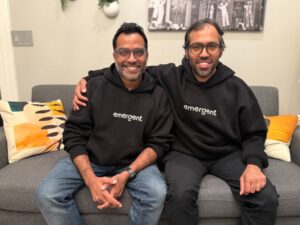Half of UK Adults Don’t Know Their State Pension Entitlement — What This Means for the Future of Retirement

Imagine reaching retirement and discovering your pension income is far lower than expected.
For many tech workers in the UK, this is not a distant fear but a real possibility. Recent surveys reveal that around 50% of adults are unaware of what they are entitled to under the state pension. This lack of awareness is worrying at a time when the state pension age is rising and the cost of living continues to climb. Without clarity, households risk entering retirement with financial gaps that are difficult to close.
The challenge is that pensions are often viewed as something to think about “later,” when in reality, the decisions made today will shape financial security decades down the line. Understanding your entitlement is the first step, but it is only the beginning. The real test is whether you can turn that knowledge into a structured, long-term plan for retirement.
Let’s take a look.
The State of Pension Awareness in the UK
Many adults in the UK do not know that they are entitled to the state pension. This lack of understanding does not just affect awareness — it has real financial consequences. Poor planning can leave people without enough income later in life, making them vulnerable as costs rise.
Rob Morgan, chief analyst at Charles Stanley and an investment manager states that:
“The state pension is a particular blind spot, since it’s rather complicated, and people simply don’t believe they need to even consider it until much older”
This statement highlights a common misunderstanding: many people think the state pension is something to think about later, even though it is an integral part of financial security during retirement.
Knowing your benefits is essential, but for many people, this knowledge isn’t enough to build a solid financial plan for retirement. The next step is to apply your knowledge and create a practical financial plan.
A Growing Role of Technology and Pensions
Pension dashboards, which the UK government aims to roll out fully in the coming years, will allow savers to see all their pensions — state, workplace, and private — in one place. This means you can check whether you are on track for retirement, forecast different scenarios, and even identify missing National Insurance contributions. For self-employed workers or those with multiple career changes, this kind of consolidation is particularly valuable.
However, while dashboards provide visibility, they cannot weigh up the personal trade-offs between retiring earlier, working longer, or balancing pensions with other investments. That step requires looking at the bigger picture — contributions, savings habits, investments, and even inheritance tax planning. Technology can highlight the numbers, but people still need to decide what those numbers mean for their future.
A recent report from the UK Government found that 42% of people aged 45 to 60 have not viewed their state pension information online. Many people do not use the available technology or do not know how to access their information.
The Gap Between Awareness and Action
Technology is helping to close the information gap, but knowing your entitlement is only part of the equation. For example, a worker might discover that they are missing several years of National Insurance contributions. While a dashboard reveals the shortfall, it cannot tell them whether to buy back missing years, adjust private pension payments, or delay retirement to secure stability.
The harder challenge is turning knowledge into long-term habits. Consistently reviewing pensions, planning contributions, and rebalancing investments requires more than data, it demands clear decisions and discipline. Advisers at Partridge Muir & Warren Chartered Financial Planners, note that “digital tools are a good starting point, but lasting results come from consistent habits and structured planning. An app can tell you how much you have, but it cannot decide whether you should increase contributions, rebalance investments, or prepare for inheritance tax,” they explain. That step requires a broader view of a family’s finances and the discipline to follow through.
This highlights a wider truth: data informs, but action secures outcomes. Whether through education, workplace schemes, or professional support, people need structured guidance to make the most of the information available.
Surprisingly, 25% of UK adults aged 66 and older are unaware that they can fill gaps in their National Insurance record to boost their State Pension income. To receive the full new State Pension, you just need 35 qualifying years of contributions. Addressing this knowledge gap is essential to avoid a significant reduction in pension income.
Conclusion
Information alone is not enough — what matters is translating it into consistent financial action. Regularly reviewing your retirement position, from state pension records to private contributions, ensures you can spot gaps early and address them. By combining digital tools with personal guidance, individuals and families can turn awareness into practical steps. This approach ensures retirement planning is not left to chance but is built on clarity, consistency, and long-term security.





